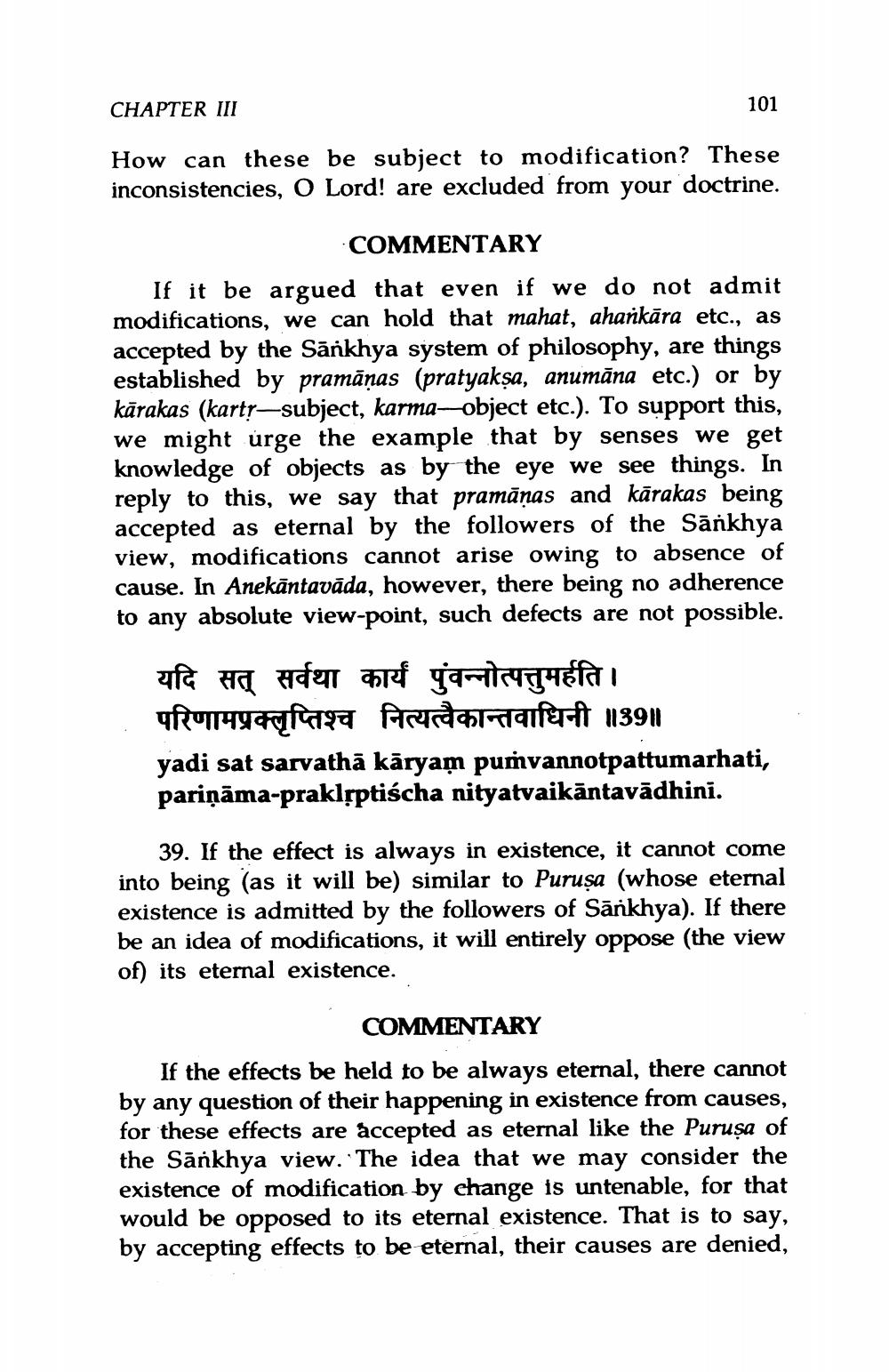________________
CHAPTER III
101
How can these be subject to modification? These inconsistencies, O Lord! are excluded from your doctrine.
COMMENTARY If it be argued that even if we do not admit modifications, we can hold that mahat, ahankāra etc., as accepted by the Sānkhya system of philosophy, are things established by pramāṇas (pratyakşa, anumāna etc.) or by kārakas (kartı-subject, karma-object etc.). To support this, we might urge the example that by senses we get knowledge of objects as by the eye we see things. In reply to this, we say that pramāṇas and kārakas being accepted as eternal by the followers of the Sārkhya view, modifications cannot arise owing to absence of cause. In Anekāntavāda, however, there being no adherence to any absolute view-point, such defects are not possible.
यदि सत् सर्वथा कार्यं पुंवन्नोत्पत्तुमर्हति। परिणामप्रक्तृप्तिश्च नित्यत्वैकान्तवाधिनी ॥39॥ yadi sat sarvathā kāryam punvannotpattumarhati, pariņāma-praklçptischa nityatvaikāntavādhini.
39. If the effect is always in existence, it cannot come into being (as it will be) similar to Puruşa (whose eternal existence is admitted by the followers of Sārkhya). If there be an idea of modifications, it will entirely oppose (the view of) its eternal existence.
COMMENTARY If the effects be held to be always eternal, there cannot by any question of their happening in existence from causes, for these effects are accepted as eternal like the Puruşa of the Sānkhya view. The idea that we may consider the existence of modification by change is untenable, for that would be opposed to its eternal existence. That is to say, by accepting effects to be eternal, their causes are denied,




